The missing link: driving one of Russia’s newest roads
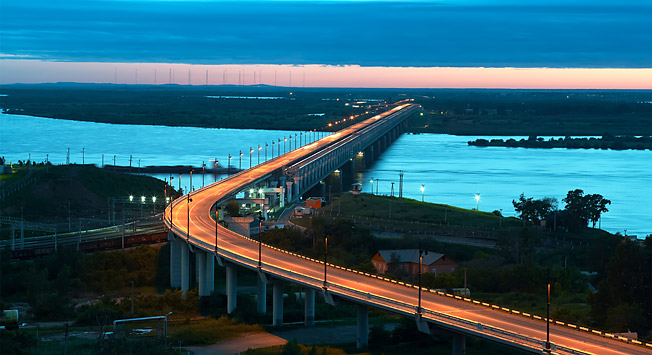
Follow the Russian Road Trip track in a larger map
Khabarovsk is one of the most attractive cities on the Trans-Siberian Highway. Take a walk along ul. Muravyov Amursky past the city’s historic tsarist-era buildings. The street ends in a square with stunning views of the Amur and two of the city’s most recognizable churches, the Dormition Cathedral to the right and the Transfiguration Cathedral located on a hill to the left..jpg)
Photo credit: Lori/Legion-Media
Stairs below the Dormition Cathedral lead down to a wide beach on the Amur. The Regional History Museum is located in a large park set back from the beach. The Voyage travel agency arranges river tours.
The Boutique Hotel has parking and gorgeous rooms for $100 a night. Try one of the city’s many Chinese or Japanese restaurants.
Into the taiga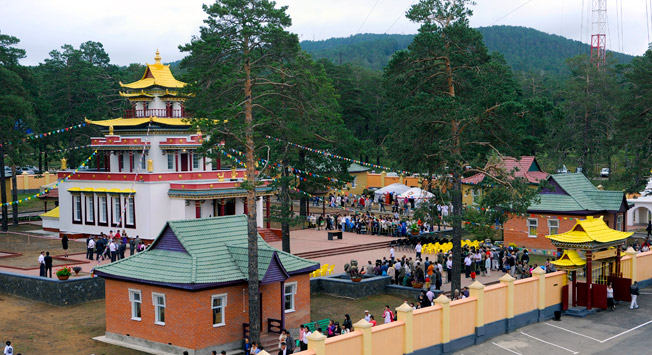
Photo credit: TASS/Evgeny Yepanchintsev
The Trans-Siberian Highway is a collection of different roadways with numbers that change from city to city. For example, the M-60 highway from Vladivostok becomes the M-58 in Khabarovsk.
From the Dormition Cathedral, drive up ul. Muravyov Amursky several blocks and take a left on the M-58. Follow the road to the Khabarovsk Bridge, once the longest bridge in Asia. It is featured on Russia’s 5,000-ruble banknote.
Driving from Khabarovsk to the city of Chita is a 2,100-kilometer journey on the newest section of the Trans-Siberian Highway. Many sections are unpaved and villages can be far apart.
Carry extra food and water in case of a break down. This is harsh country, but don’t be surprised if the first passing trucker stops and offers to help if you have car trouble.
You don’t need four-wheel drive for the M-58. Many Siberians buy used Toyotas from Japan in Vladivostok and resell them back home. These intrepid car salesmen stand out because they often cover the front of their cars with masking tape to protect them from dents caused by rocks in the road. You might want to do the same.
War memorials, Jewish history, river cruises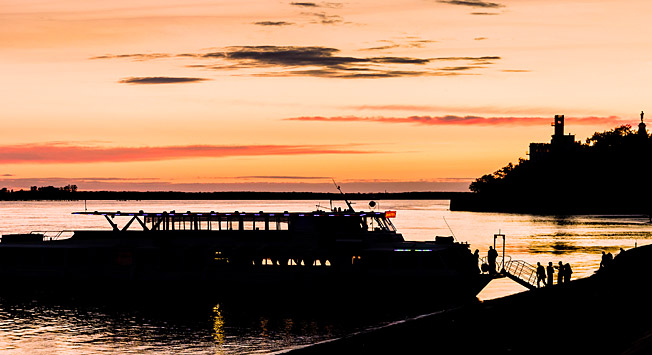
Photo credit: Shutterstock/Legion-Media
The village of Volochaevka is 50 kilometers west of Khabarovsk. The last major battle of the Russian Civil War was fought here in 1922.
White steps lead up a hill here to a monument for those who died in the fighting. It is on the right from the M-58.
From Volochaevka you’ll soon reach Birobidzhan (2 hours, 145 kilometers), the capital of the Jewish Autonomous Region, established as a new Jewish homeland in 1934. Birobidzhan is a good option to stop for the night.
Although most Jews left Birobidzhan long ago, signs in Yiddish and images of menorahs and dreidels on Birobidzhan’s bus stops remain. The Regional Museum has great exhibits on the region’s unique history. You can find rooms at the Hotel Vostok for about $70 a night.
West of Birobidzhan, the land becomes more mountainous and the villages further apart. Located about an hour west of the M-58, Blagoveshchensk (7 hours, 500 kilometers from Birobidzhan) is a charming city on the Amur and a good place to load up on supplies before tackling the most challenging section of the M-58.
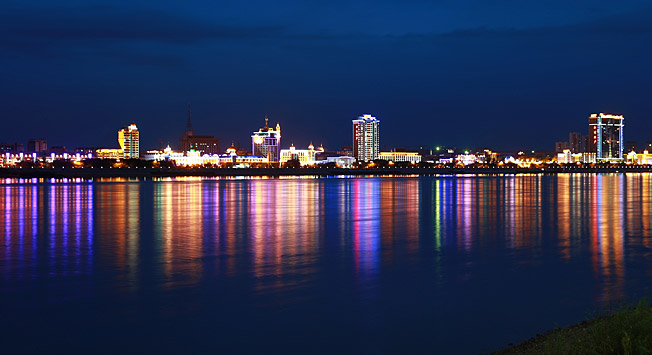
Photo credit: TASS/Vladimir Smirnov
Check out the historic buildings on ul. Lenina and take in the views of the Chinese city of Heihe across the Amur River. You can take a river cruise (spring-fall) or ferry across to spend a day in China, but you’ll need to get a visa beforehand at the Chinese Consulate in Khabarovsk. The Hotel Druzhba has rooms for about $50 a night.
The road to Chita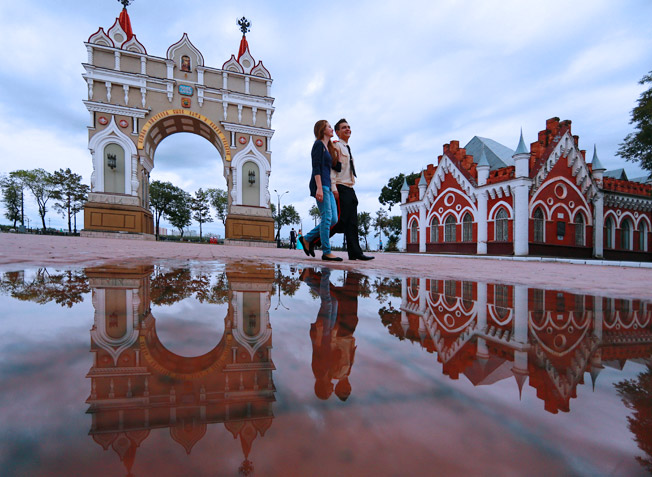
Photo credit: TASS/Vladimir Smirnov
From Blagoveshchensk it’s over 1,500 kilometers to the city of Chita. Much of the M-58 in this section is unpaved and passes through the rugged Yablonovy Mountains.
Pack camping gear and a warm sleeping bag for this part of the trip. With a good vehicle, it is possible to travel on the back roads to hike through the mountains and camp. In this stretch you’ll reach a village about every hour. Most towns have a roadside cafe where you can buy a hot meal and travelers can usually camp outside.
The city of Tynda (12 hours, 800 kilometers from Blagoveshchensk) is a few hours north of the M-58. Once a booming railroad town, Tynda is a good place to stop on the drive to Chita. The city’s BAM museum has exhibits on the Baikal-Amur Mainline, a northern line that runs parallel to the Trans-Siberian Railroad. The Hotel Yunost has rooms for about $50 a night. Sokol Tours can arrange a tour of Tynda and the surrounding area.
The small cities of Magdagachi, Skovorodino and Chernyshevsk are all located about a day’s drive from one another on the M-58 and have hotels in the center.
The M-58 ends with a dramatic 10 kilometer ascent up a steep mountain before plunging down to Chita through green forests. Celebrate in Chita as the most difficult section of Russia’s longest road is now behind you!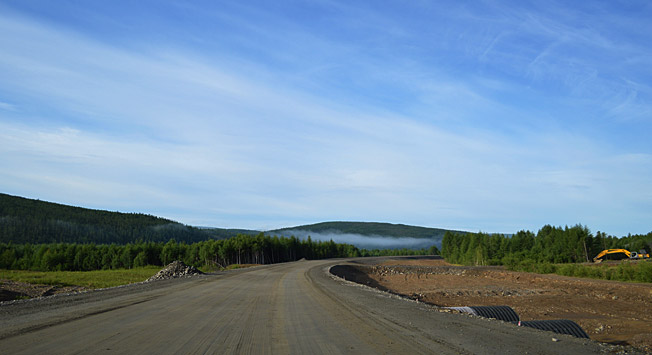
Photo credit: Lori/Legion-Media
All rights reserved by Rossiyskaya Gazeta.
Subscribe
to our newsletter!
Get the week's best stories straight to your inbox